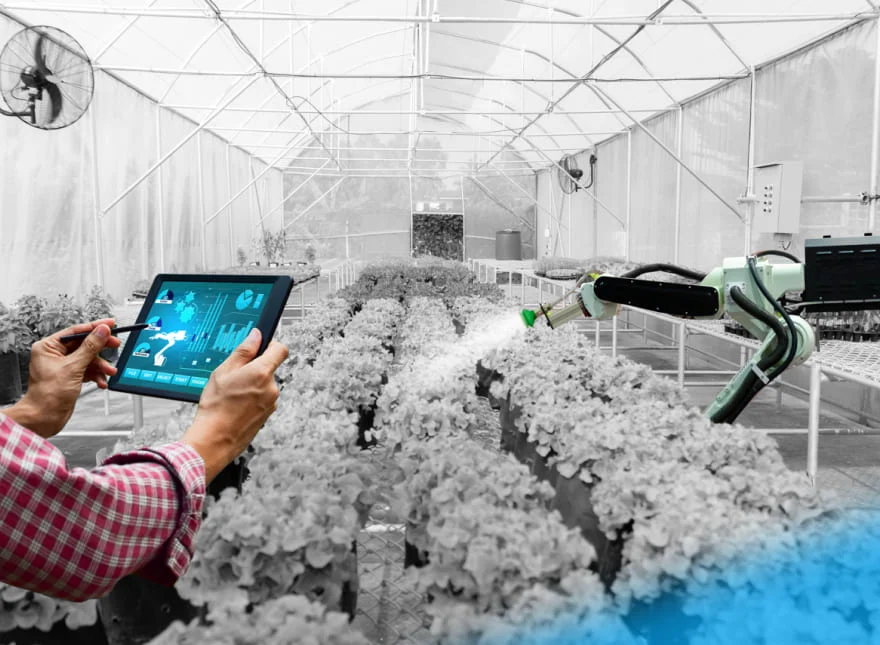In recent years, the agricultural industry has seen a significant increase in the use of technology to improve efficiency and optimize crop production. One area that has particularly benefited from these advancements is management.
With the rise of smart solutions, farmers and growers now have access to sophisticated software that can accurately monitor and control water usage on their fields. However, with a multitude of options available in the market, navigating the world of management system software can be overwhelming.
Here we aim to provide a comprehensive overview of smart irrigation solutions, their benefits, and key factors to consider when choosing the right software for your specific needs. We will delve into the various features and capabilities of these systems, as well as the different types of sensors and controllers used.
Furthermore, we will explore how these solutions can help improve water conservation, increase crop yields, and ultimately, contribute to sustainable farming practices. As we delve into the world of smart systems, we will shed light on the top players in the market and provide insights on how to select the best solution for your management needs.
Efficiently manage water usage with smart irrigation solutions.
Smart solutions provide an effective and efficient way to manage water usage in various applications, from residential gardens to large-scale agricultural fields. By leveraging advanced technologies such as sensors, weather data, and cloud-based software, these solutions optimize schedules, ensuring that water is only used when and where it is needed.
This not only conserves water but also reduces water waste and associated costs. Additionally, smart systems can automatically adjust watering based on factors like soil moisture levels, rainfall predictions, and plant requirements, resulting in healthier plants and improved overall water management.
With the ability to remotely monitor and control systems, users can easily customize settings and make adjustments in real-time, maximizing efficiency and productivity. By embracing the best irrigation software solutions, stakeholders can actively contribute to sustainable water management practices and achieve significant financial savings in the long run.
Stay informed with real-time data tracking.
Real-time data tracking is a crucial feature of modern management system software that allows users to stay informed and make data-driven decisions. With this capability, stakeholders can access up-to-the-minute information about various parameters such as soil moisture levels, weather conditions, and water usage.
By utilizing real-time data tracking, users can identify trends, patterns, and anomalies, enabling them to optimize schedules and make timely adjustments as needed. This proactive approach ensures that water is used efficiently, avoiding over or under-watering scenarios.
Moreover, real-time data tracking empowers users to monitor system performance, identify potential issues, and take prompt action to maintain optimal operation.
By leveraging this invaluable tool, stakeholders can enhance productivity, reduce costs, and contribute to sustainable water management practices.
Customize schedules for optimal watering.
To further optimize water usage and irrigation efficiency, modern management system software offers the capability to customize schedules for optimal watering. This feature allows users to tailor plans based on specific needs and conditions.
By considering factors such as plant types, soil types, and weather patterns, users can create personalized watering schedules that ensure plants receive the right amount of water at the right time. This level of customization not only prevents water wastage but also promotes healthier plant growth and reduces the risk of water-related issues such as overwatering or drought stress.
With the ability to customize schedules for optimal watering, stakeholders can maximize the effectiveness of their systems and achieve the most efficient use of water resources.
Maximize productivity with remote access.
Remote access capabilities within management system software can significantly maximize productivity in the realm of smart solutions. With remote access, users are able to monitor and control their systems from any location, eliminating the need for constant physical presence and on-site adjustments.
This not only saves valuable time and resources but also enables stakeholders to promptly respond to changes in weather condition needs. By accessing the system remotely, users can easily modify schedules, adjust settings, and receive real-time notifications and alerts, ensuring that the system is always operating at peak efficiency.
The convenience and flexibility offered by remote access empower stakeholders to manage their systems effectively and make timely decisions, ultimately leading to increased productivity and optimal water usage.
Simplify irrigation management with user-friendly software.
To simplify management, incorporating user-friendly software is paramount. With intuitive interfaces and streamlined functionality, these software solutions provide users with a seamless experience in managing their systems.
From designing schedules to monitoring water usage, these software solutions offer comprehensive tools that enable users to optimize their practices. The user-friendly nature of the software ensures that even individuals with limited technical expertise can navigate and utilize the system efficiently.
By simplifying the process of management, these software solutions empower users to make informed decisions, maximize water efficiency, and achieve optimal crop yield. With the complexity of systems simplified through user-friendly software, stakeholders can focus on the crucial aspects of their operations and drive productivity in the realm of smart solutions.
Overall, investing in smart solutions and utilizing management system software is a wise decision for any agricultural or landscaping business. Not only does it save time and money by optimizing water usage, but it also helps to conserve natural resources and promote sustainable practices.
With the constantly evolving technology and increasing demand for efficient methods, it is crucial for businesses to stay updated and adapt to these advancements. By implementing smart, businesses can improve their operations and contribute to a greener future.



































